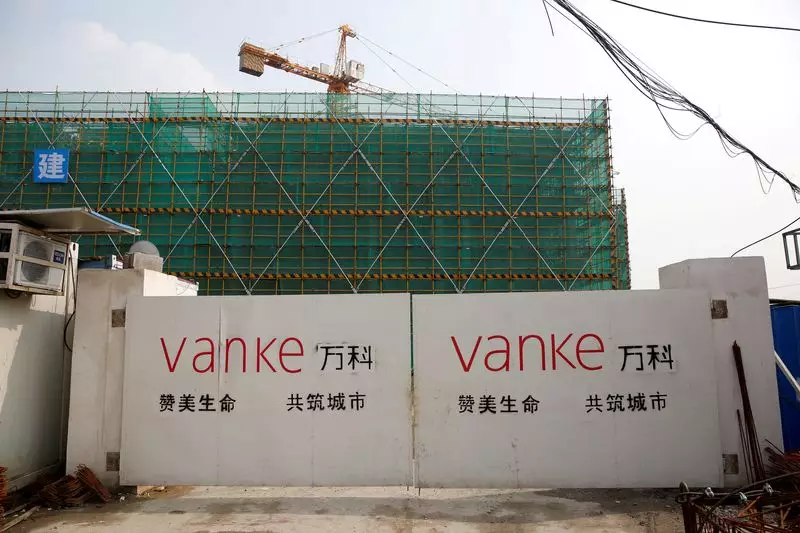China’s property market has been grappling with severe financial turbulence for the last five years, a situation exacerbated by the onset of the liquidity crisis that has claimed the stability of several developers, particularly significant players like China Evergrande. This sector, once considered a robust pillar of China’s economic framework, has seen its reputation plummet as companies struggle under the weight of massive debts and dwindling consumer confidence. Vanke, one of the most recognized property developers in the country, finds itself at a critical juncture, facing enormous challenges that could reshape the landscape of real estate across China.
Vanke’s predicament gained heightened scrutiny following alarming reports suggesting the detention of its CEO, creating a ripple effect of concern about the company’s governance and financial health. Previous measures by the government to stabilize the situation have often skirted direct involvement in the industry, wary of the implications of moral hazard associated with bailouts. However, as the crisis deepens, there is growing speculation that Chinese authorities may need to rethink their strategies and potentially intervene in Vanke’s affairs in an unprecedented manner.
As of mid-2023, Vanke’s financial indicators paint a grim picture, showing a staggering interest-bearing debt of approximately 331.3 billion yuan (about $45.21 billion)—an amount that raises eyebrows not only among investors but also among policymakers tasked with maintaining economic stability. The alarm bells were sounded recently when three global credit rating agencies downgraded Vanke’s status into junk territory, reflecting pessimistic forecasts about its sales outlook and the potential for loan repayment defaults.
This deterioration is underscored by Vanke’s looming debt obligations, including a critical yuan repayment due on January 27 and an overall liability exceeding $3.4 billion in 2023 alone. Market analysts have expressed deep concern over Vanke’s capability to execute these repayments amid plunging sales and hurdles in borrowing financing from traditional banks, which are also wary of their exposure to the beleaguered sector.
The Shenzhen government, where Vanke is headquartered, is in a pivotal position as stakeholders seek to craft a viable path forward. Reports indicate that local officials are stepping up strategic meetings with state-owned enterprises to explore pathways for managing Vanke’s burgeoning debt crisis. Given the importance of Vanke in the construction industry and the wider economy, the stakes are high. A failure on the part of this company could erode the fragile recovery that the housing market has been attempting to stage, risking the overall economic stability that Chinese authorities have worked hard to maintain.
Analysts have revealed that Vanke’s position is more than just a corporate issue; it reflects a broader pattern of confidence that homebuyers and investors hold within the real estate sector. A negative turn for Vanke could be a deterrent for buyers, potentially leading to further financing restrictions across the industry. Such a climate could provoke panic among other developers already navigating their crises, creating a domino effect that results in systemic financial risks.
There are growing discussions around the idea of a state-backed bailout, a move that could potentially reshape regulatory perceptions of government involvement in the market. Observers note that if the Shenzhen government decides to intervene, it might not adopt a traditional bailout model involving direct capital infusion. Instead, a strategic approach may involve state firms acquiring assets or extending new funding lines to stabilize Vanke without triggering the moral hazard issues associated with direct financial rescues.
A comprehensive government intervention could serve to bolster homebuyer confidence, ensuring the completion of pre-sold homes and potentially mitigating further declines in consumer trust. With policymakers under pressure to maintain stability, they find themselves at a crossroads: to intervene directly and risk creating expectations of future bailouts, or to maintain a hands-off approach and witness potentially catastrophic fallout in the real estate sector.
Vanke stands at a turning point where its future will not only define its trajectory but also significantly influence the path of the Chinese property market. The decisions made by both local and national government officials in the coming months will be critical in shaping both Vanke’s fate and the overall economic landscape of one of the world’s largest economies. The ramifications of these choices will prove pivotal, and the global community will be watching closely as developments unfold.

